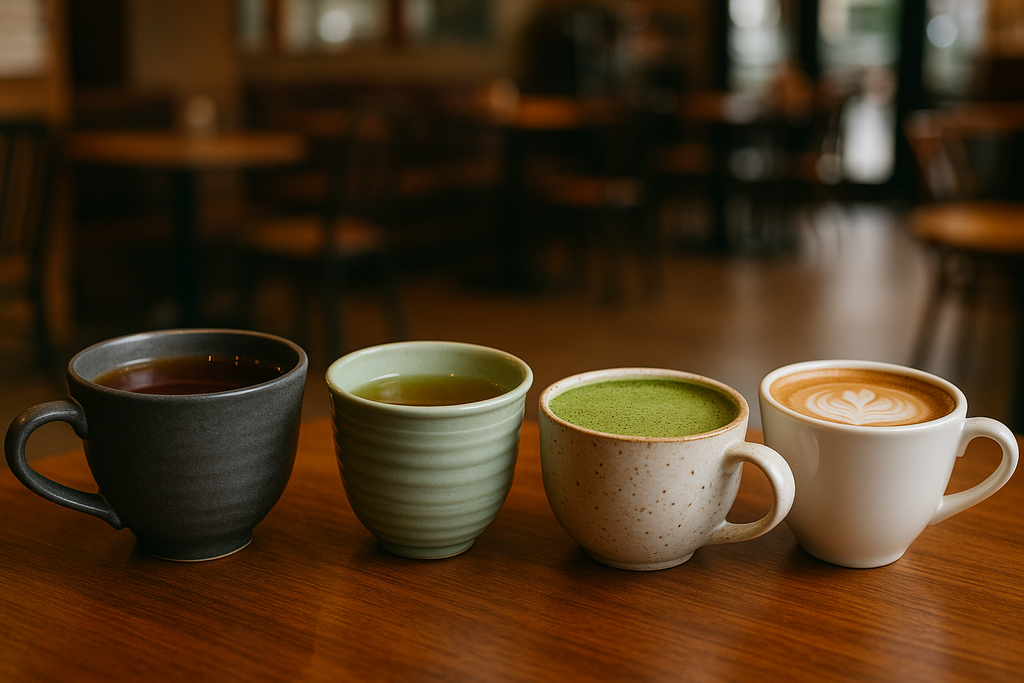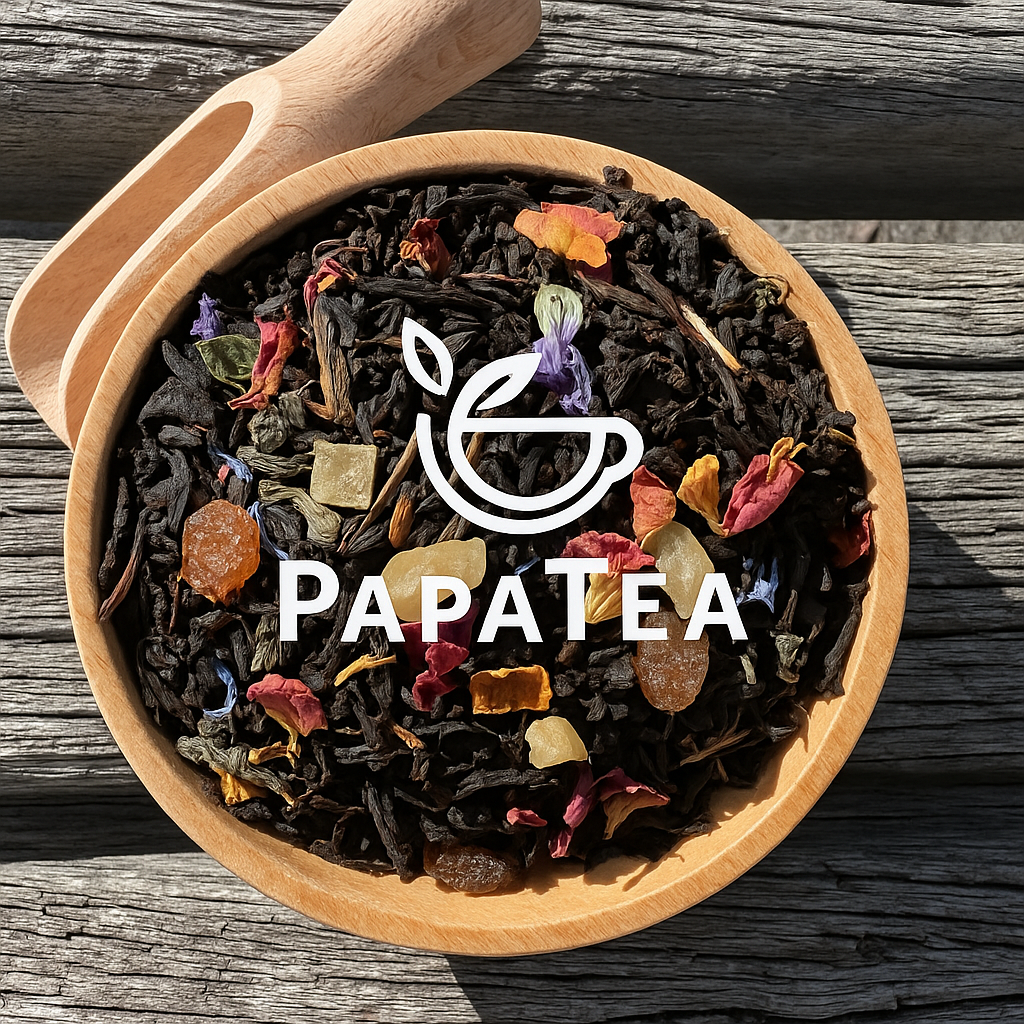
The Caffeine Chronicles: Coffee vs. Tea vs. Matcha. Which One is Right for You?

Coffee vs Tea vs Matcha
It’s a universal story. The alarm blares, the morning grogginess sets in, and we reach for a cup of something warm and energising to kickstart our day. For millions, this ritual is non-negotiable. But the world of caffeinated beverages is far more diverse than a simple choice between on or off. The titans of this world: coffee, tea, and matcha each offer a uniquely different experience, a different kind of energy.
So, how do you choose your champion? Is it the powerful, immediate jolt of coffee? The gentle, sustained awakening from a classic cup of tea? Or the focused, calm energy of matcha? The answer lies not just in flavour, but in the fascinating science of caffeine. Let's journey through the facts, debunk some myths, and help you find the perfect brew for the buzz you're looking for.
The Heavy Hitter: The Coffee Jolt
Coffee is the undisputed king of the fast-acting buzz. Its effects are bold, direct, and for many, the only way to shake off sleep's inertia. But the amount of caffeine in your cup is a tale of many variables.
A standard 250 ml (8 oz) cup of drip coffee is often the benchmark, containing anywhere from 95 to 165 mg of caffeine. It's a reliable, potent dose. But what about its popular variations?
-
Espresso: Herein lies a common myth. A single shot of espresso (about 30 ml or 1 oz) contains roughly 64 mg of caffeine. While that’s less than a full cup of drip coffee, its concentration is immense. Per ounce, espresso is the clear winner. This is why that double-shot latte still packs a significant punch.
-
Cold Brew: The gentle steeping process of cold brew, which uses cold water over a long period (12-24 hours), creates a less acidic, smoother drink. However, due to the very high coffee-to-water ratio, it can be surprisingly potent, often clocking in at 150-230 mg or even more for a standard serving.
-
The Roast Myth: It’s a common belief that a darker, bolder-tasting roast contains more caffeine. The opposite is actually true! The roasting process burns off a small amount of caffeine. Therefore, a light roast bean technically has a slightly higher caffeine concentration than a dark roast.
The coffee buzz is fast because caffeine is rapidly absorbed into the bloodstream, peaking in as little as 30-60 minutes. It’s a powerful jolt, but it can sometimes come with a subsequent crash.
The Gentle Giant: The World of Tea
Tea offers a more nuanced and varied approach to energy. Whether you're looking to buy black tea, buy green tea, or explore the delicate notes of a white tea, you're tapping into the power of the Camellia sinensisplant. The differences in caffeine arise from the processing of the leaf and, most importantly, how you brew it.
Here’s a general guide for a 250 ml (8 oz) cup:
-
Black Tea: The most oxidized of the teas, a robust English Breakfast or Earl Grey black tea typically contains 40 to 70 mg of caffeine. It's the strongest of the traditional teas, offering a noticeable but smooth lift.
-
Oolong Tea: This semi-oxidized tea sits between black and green, and so does its caffeine content, generally ranging from 30 to 60 mg.
-
Green Tea: With minimal oxidation, green tea holds onto more of its beneficial compounds and has a lower caffeine content, usually 20 to 45 mg.
-
White Tea: Made from the youngest leaves and buds, white tea is the least processed and typically has the lowest caffeine content, from 15 to 30 mg.
Your Brewing Power: Time and Temperature
The most empowering fact for any tea drinker is that you control the caffeine! Caffeine is highly soluble in water, and its extraction is governed by two key factors:
-
Water Temperature: The hotter the water, the more quickly caffeine is extracted. This is why black teas, brewed with boiling water, tend to have more caffeine than green teas, which use cooler water (around 80°C or 175°F).
-
Steeping Time: The longer you steep your loose leaf tea, the more caffeine will infuse into your cup. A black tea steeped for 5 minutes will be significantly more caffeinated than one steeped for 2 minutes.
What about herbal teas? True herbal teas (like peppermint, chamomile, or hibiscus) are infusions of other plants and are naturally caffeine-free, making them a perfect tea for sleep. However, be aware of caffeinated exceptions like Yerba Maté, which can contain as much caffeine as coffee.
The Zen Master: The Matcha Paradox
Matcha is the most fascinating character in our story. It is a finely ground powder of specially grown and processed green tea leaves. When you drink regular green tea, you’re drinking an infusion. When you drink matcha, you are consuming the entire leaf.
This fundamental difference means the caffeine content is dramatically higher, often ranging from 40 to 85 mgfor a standard serving made with one teaspoon of powder. This puts it in the same league as a strong cup of black tea or a weak cup of coffee.
But here’s where the magic happens. Matcha is also rich in an amino acid called L-theanine. Science has shown that L-theanine works in beautiful synergy with caffeine. It promotes the production of alpha (α) waves in the brain, which are associated with a state of relaxed wakefulness or "alert calmness."
Instead of the sharp jolt of coffee, the L-theanine in matcha modulates the effects of caffeine, slowing its absorption and preventing the jitters and subsequent crash. The result is a sustained, focused energy that can last for 3-6 hours. It’s an energy of clarity, not franticness.
The Final Showdown: Which Buzz is For You?
|
Beverage |
Typical Caffeine (250ml/8oz) |
Onset |
Feeling |
|
Drip Coffee |
95 - 165 mg |
Fast (30 mins) |
Strong, sharp jolt |
|
Espresso |
64 mg (per 30ml shot) |
Very Fast |
Concentrated, intense burst |
|
Black Tea |
40 - 70 mg |
Moderate |
Smooth, gentle lift |
|
Green Tea |
20 - 45 mg |
Moderate |
Mild, clean alertness |
|
Matcha |
40 - 85 mg |
Slow, Sustained |
Calm, focused, alert energy |
Ultimately, there is no single "best" choice. The right brew depends entirely on your needs. Need to power through a deadline with immediate effect? Coffee might be your ally. Looking for a gentle pick-me-up to accompany your afternoon read? A beautiful oolong tea could be perfect. Want to cultivate hours of focused, creative energy without the jitters? Matcha is your answer.
Exploring this world is a journey of taste and sensation. Finding your perfect cup is part of the pleasure. At PapaTea, we are passionate about providing the highest quality leaves to accompany you on that journey. Whether you choose to buy green tea online for a classic brew or select a premium grade black tea for a mindful ritual, we believe in sourcing the finest ingredients to help you find not just your favourite drink, but your perfect moment of energised calm.









